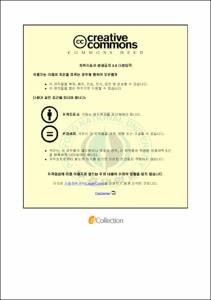일-가정 양립제도가 종업원의 직무만족에 미치는 영향
- Abstract
- This study examines how work-family benefits influence on both employees' attitude and organizational performance. For the purpose this study, the author surveyed the current status of work-family benefits policy that were exercised by the enterprises and counted how many enterprises have installed work-family benefits as company welfare policies. 41 enterprises were surveyed, and have been operating 21 different types of work-family benefits program; as many as ran 12 programs while as little as ran 3.
After survey on status of work-family benefits, the author established research model regarding the causal relationship from work-family benefits and work-family culture through work-family enrichment and organizational-based self-esteem to job satisfaction. Based on the theoretical literature, 5 variables and 10 hypothesis were established as a research model.
For the sampling of research, questionnaires was distributed to employees in 41 enterprises and returned. After deleting invalid responses, 308 questionnaires were used for statistical analysis. The results showed that not only work-family benefits positively affected from work-family enrichment through organization-based self-esteem to job satisfaction but also did directly to job satisfaction and so did work-family culture. The author also identified the mediating effects of organization-based self-esteem and work-family enrichment in the relationship between work-family programs and job satisfaction.
Especially, work-family culture did not affect to work-family benefits. This result suggests that HR managers not only adopt work-family programs, but also exert additional efforts in creating work-family culture.
In conclusion, this study gave a flash of insight into how work-family benefits influence on employees' attitude and organizational performance by quantitative analysis. The study also emphasized that personnel staff can provide the opportunity of work-family enrichment to employee by implementing work-family benefits and creating work-family culture which enabled employees to improve organizational-based self-esteem and to be satisfied with their job.
Key word : work-family benefits, work-family culture, job satisfaction, work-family enrichment, organization-based self-esteem
- Issued Date
- 2011
- Awarded Date
- 2011. 2
- Type
- Dissertation
- Keyword
- 일-가정 양립제도 work-family benefits 일-가정 양립문화 work-family culture 일-가정 충실 work-family enrichment 조직기반 자긍심 organizational-based self-esteem 직무만족 job satisfaction
- Publisher
- 부경대학교
- Affiliation
- 부경대학교 대학원 경영학과
- Department
- 대학원 경영학과
- Advisor
- 김영조
- Table Of Contents
- < 목 차 >
Abstract
제 1 장 서 론 1
제 1 절 연구의 필요성과 목적 1
제 2 절 연구의 방법과 절차 5
제 2 장 이론적 배경 6
제 1 절 일-가정 양립제도 6
제 2 절 일-가정 양립문화 11
제 3 절 조직기반 자긍심 13
가. 자긍심 일반 13
나. 조직기반 자긍심 14
제 4 절 일-가정 충실 16
가. 일-가정 충실의 정의와 내용 17
나. 다양한 유사 구성개념들 18
제 5 절 직무만족 20
제 3 장 연구 모형 및 가설 설정 21
제 1 절 연구 모형 21
제 2 절 가설 설정 23
가. 일-가정 양립제도 23
나. 일-가정 양립문화 24
다. 일-가정 충실 25
라. 조직기반 자긍심과 직무만족 26
제 4 장 연구 방법 27
제 1 절 변수의 조작적 정의 및 측정 27
가. 일-가정 양립제도 27
나. 일-가정 양립문화 28
다. 조직기반자긍심 28
라. 일-가정 충실 30
마. 직무만족 32
제 2 절 자료의 수집 및 분석 방법 34
가. 자료의 수집 34
(1) 예비조사 34
(2) 본 조사 35
나. 분석 방법 36
제 5 장 실증분석 37
제 1 절 표본의 특성 37
가. 인구통계학적인 특성 37
나. 표본 기업의 일-가정 양립제도 시행 현황 38
다. 일-가정 양립제도 별 종업원의 태도 차이 40
제 2 절 신뢰성 및 타당성 분석 42
제 3 절 연구 모형 및 가설 검증 46
가. 집중타당성과 판별타당성 검증 46
나. 가설 검증 50
다. 수정 모형 54
라. 집단 간 차이 검증 55
제 6 장 요약 및 결론 58
제 1 절 연구결과의 요약 및 시사점 58
가. 연구결과의 요약 및 논의 58
나. 실무적 시사점 59
제 2 절 연구의 한계 및 향후 연구방향 61
참 고 문 헌
설 문 지
- Degree
- Master
- Files in This Item:
-
-
Download
 일-가정 양립제도가 종업원의 직무만족에 미치는 영향.pdf
기타 데이터 / 1.09 MB / Adobe PDF
일-가정 양립제도가 종업원의 직무만족에 미치는 영향.pdf
기타 데이터 / 1.09 MB / Adobe PDF
-
Items in Repository are protected by copyright, with all rights reserved, unless otherwise indicated.